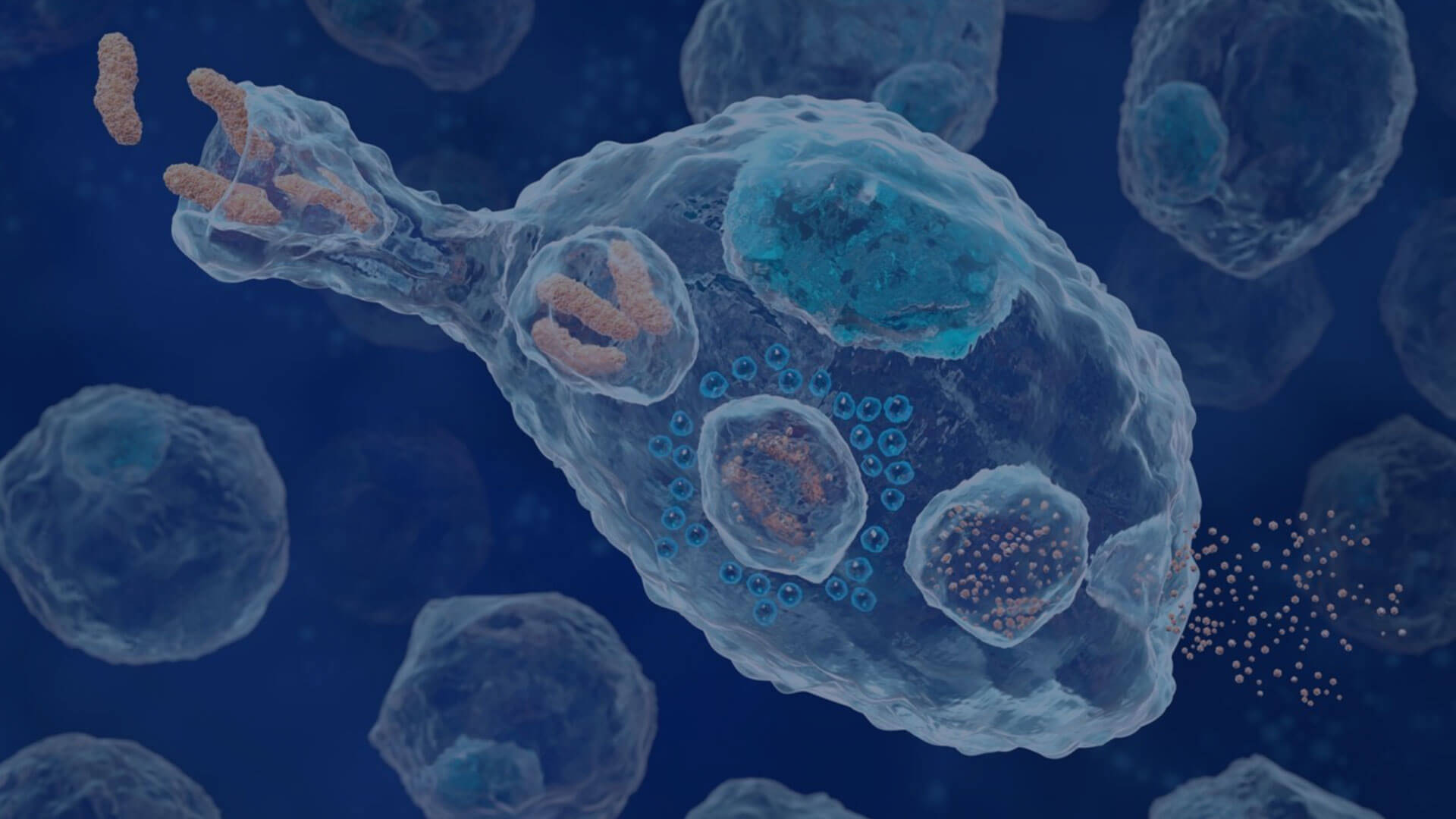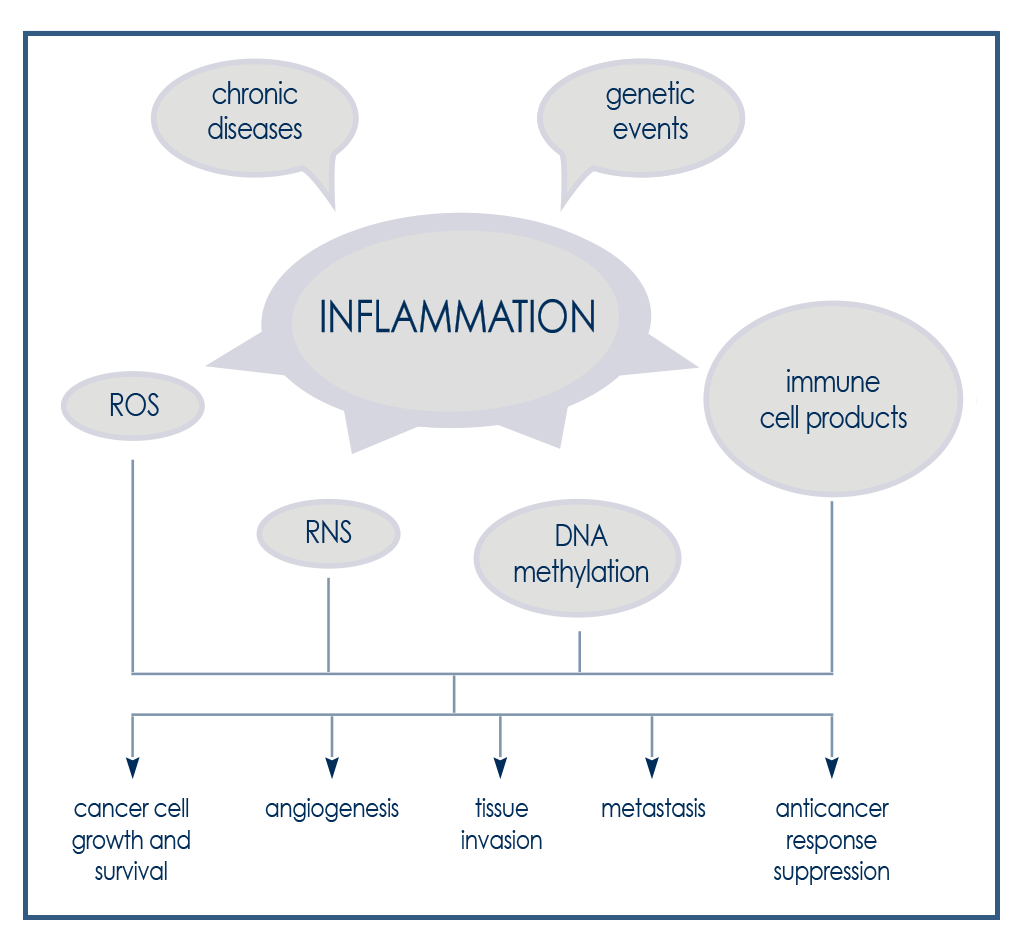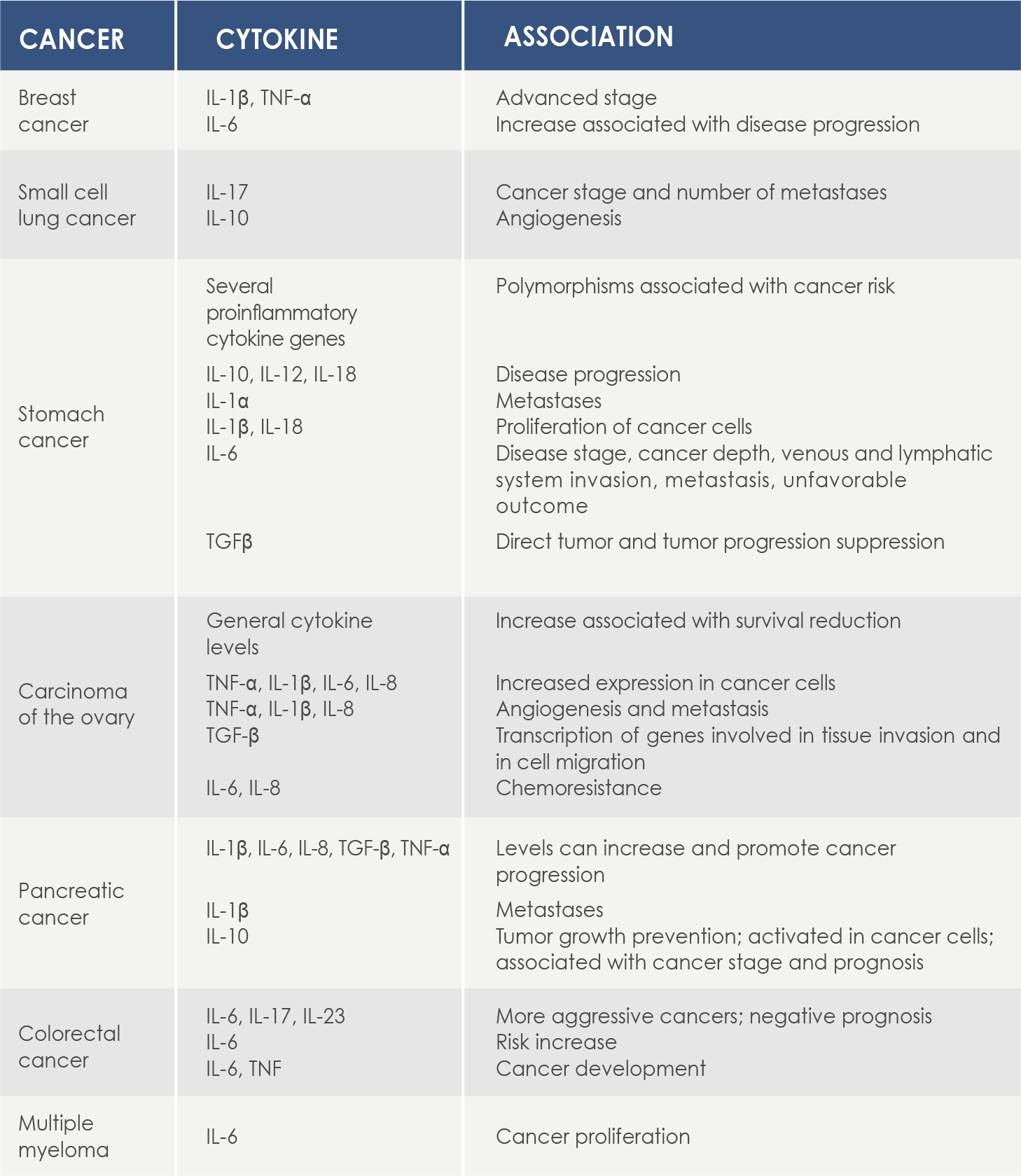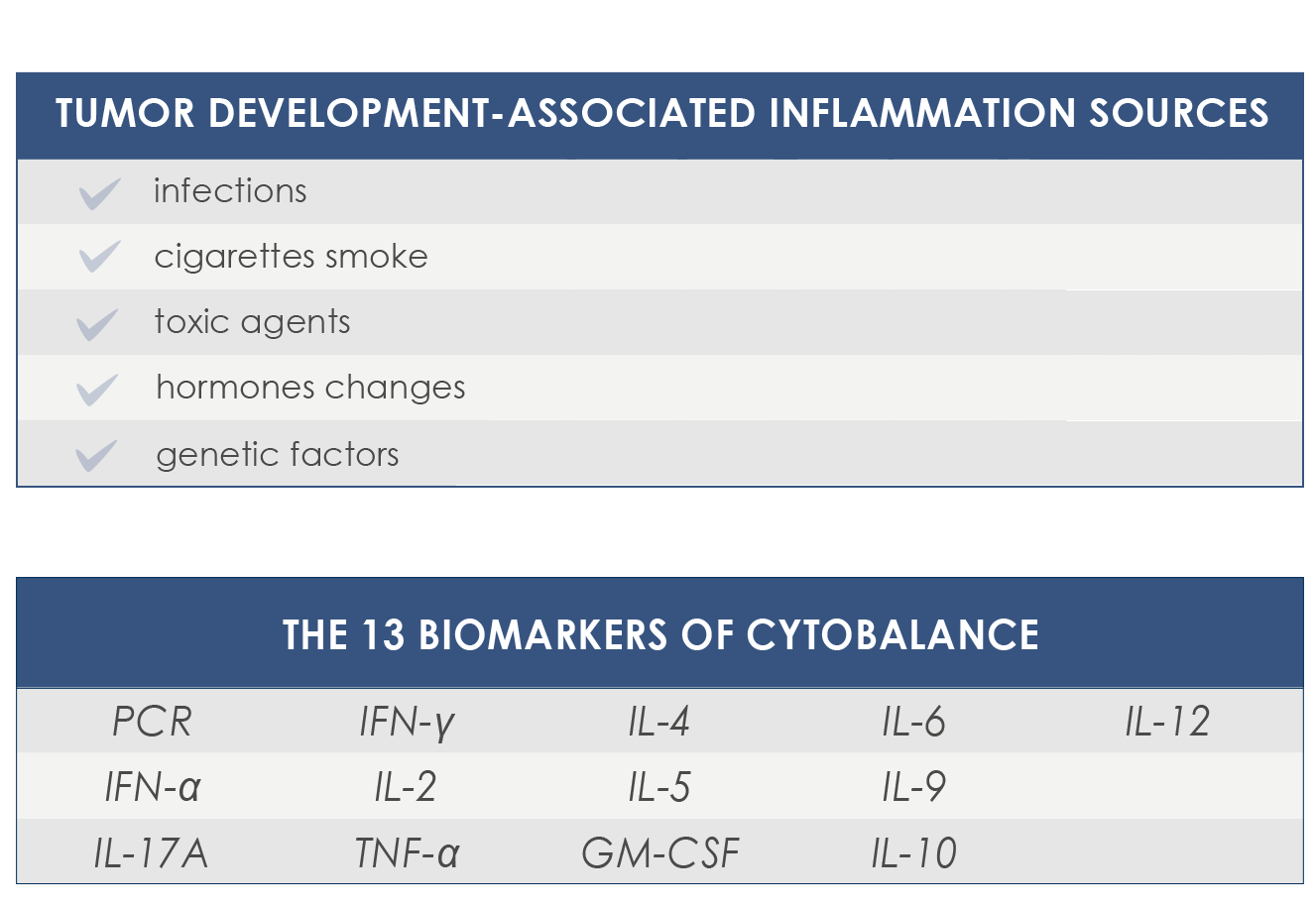The link between inflammation and tumors depends on two different phenomena. On the one hand, genes involved in the development of cancer can stimulate inflammatory processes. On the other hand, inflammation increases the risk of cancer by suppressing antitumor immune responses and creating conditions that favor the accumulation of mutations, the growth and survival of tumor cells, the formation of blood vessels that nourish the tumor, the ability of tumor mass to invade surrounding tissues and to stimulate metastases.
The analysis of the inflammation levels enables the identification of situations of increased risk and the implementation of strategies to counter the increase in pro-inflammatory molecules.




